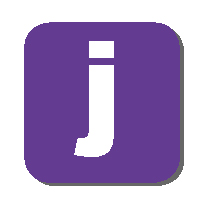
(PRWEB) September 01, 2014
The session will give delegates insight into the role that tech giants like Samsung, Google and Apple can play as they enter the health and wellness market and their impact on preventative care and disease management. Cambridge Consultants believes that as healthcare delivery models change, non-regulated devices can be effectively incorporated into care plans to not only prevent onset of disease but also provide more data for managing lifestyle diseases.
Cambridge Consultants will take the stage with Samsung Research Institute and Jawbone to further discuss how to succeed in this growing market that has seen big investment in recent months, including dealing with important aspects such as device reliability, data security, user experience, etc. The session titled “Consumer Brands Take Charge of mHealth” will take place in San Diego on October 14.
The full session description can be viewed below:
Consumer Brands Take Charge
With reports suggesting that $ 2.2B has already been invested in digital health start-ups in the first half of 2014, it’s crucial for the impact of these investments to be outlined.
Discuss the role tech giants, e.g. Apple and Samsung, will play such as focusing on wellness vs. certified mainstream healthcare to predict how consumer adoption will be effected
Capitalize on the increase in market acceptance and data reliability created by successful services, e.g. glucose and fitness monitoring, to develop the next wave of successes
Wearable explosion: How will smart watches, sensor lead jewellery and clothing change behaviours to create “healthcare customers” and prevent disease from the onset?
Moderator: Kyle Samani, CEO/Co-Founder, Pristine
Vaishali Kamat, Associate Director – Head of Connected Health, Cambridge Consultants
Andrew Rosenthal, Group Manager – Wellness and Platform, Jawbone
Ogan Gurel, MD, Director, Samsung Advanced Institute of Technology
The complete agenda and speaker line-up can be viewed here:
http://www.openmobilemedia.com/connected-healthcare-mhealth-usa/
The Connected Healthcare USA Conference and Exhibition (14-15 October in San Diego) is a niche, researched-based event that unites 200 leading players from the mHealth market from the hospitals, insurers, integrators, software developers, device manufacturers, tech innovators and government to examine the steps needed to develop and deploy a strong business model to create market traction and scale connected health services.
For the complete Connected Healthcare 2014 conference program and speaker line-up, access the e-brochure at: http://www.openmobilemedia.com/connected-healthcare-mhealth-usa/conference-event-brochure.php or contact the mHealth project team at mhealth(at)openmobilemedia(dot)com.
Register by September 19th to get discounts via the secure link below to take advantage of a $ 100 saving on all conference passes: https://secure.openmobilemedia.com/connected-healthcare-mhealth-usa/register.php.
About Open Mobile Media:
Open Mobile Media is the reference point for future mobile and web landscapes. We aim to provide you with industry focused news, events, reports, updates and information. Open Mobile Media is part of FC Business Intelligence Ltd. FC Business Intelligence Ltd is a registered company in England and Wales – Registered number 04388971, 7-9 Fashion Street, London, E1 6PX, UK. enabling dialogue throughout the industry.
About Cambridge Consultants:
Cambridge Consultants develops breakthrough products, creates and licenses intellectual property, and provides business consultancy in technology critical issues for clients worldwide. For 50 years, the company has been helping its clients turn business opportunities into commercial successes, whether they are launching first-to-market products, entering new markets or expanding existing markets through the introduction of new technologies. With a team of more than 400 staff, including engineers, scientists, mathematicians and designers, in offices in Cambridge (UK), Boston (USA) and Singapore, Cambridge Consultants offers solutions across a diverse range of industries including medical technology, industrial and consumer products, digital health, energy and wireless communications. For more information, visit: http://www.CambridgeConsultants.com.
Contact:
Shreya Ganapathy
Research Director- mHealth
Open Mobile Media
P: +44 20 7375 7150
E: shreya(at)openmobilemedia(dot)com
Related Big Data Healthcare Press Releases


